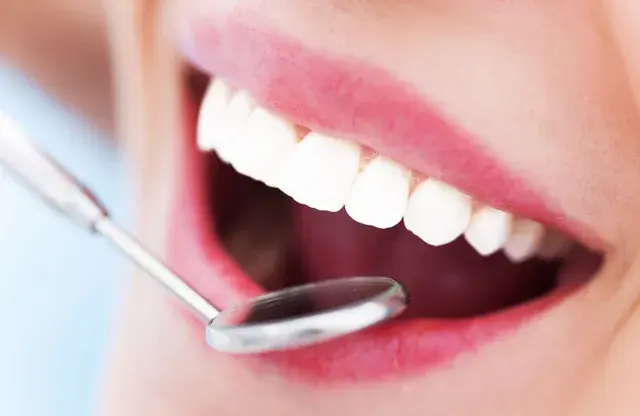When you think about oral health, your teeth and gums probably come to mind, along with a bright smile or trips to the dentist. But oral health impacts more than just your appearance. Dental issues affect your overall well-being, influencing everything from heart health to nutrition.
The Mouth-Body Connection
Your body operates as an interconnected system, and your mouth plays an essential role in maintaining balance. Oral health is closely linked to systemic health through multiple pathways:
- The bloodstream connection: When bacteria from your mouth enter your bloodstream, it can trigger inflammation that affects other parts of your body.
- Nutrition and its effects: Poor oral health can limit your ability to chew or eat nutrient-dense foods, leading to deficiencies.
- Stress on the immune system: Chronic infections or inflammation in the mouth can overburden your body’s defense mechanism, making it more vulnerable to diseases.
The old saying, “Your mouth is the gateway to your body,” couldn’t be closer to the truth. Neglecting oral care can open the door to harmful consequences—not just for your smile but for your overall health.
Specific Dental Issues
1. Gum Disease
Gum disease, also known as periodontal disease, starts with inflammation of the gums (gingivitis) and can progress to affect the bone that supports your teeth. However, its impact extends far beyond the mouth.
Linked Health Conditions
- Heart Disease: Research shows a strong connection between gum disease and heart problems. Chronic inflammation caused by gum disease can narrow arteries and increase the risk of heart attack and stroke.
- Diabetes: Gum disease and diabetes have a two-way relationship. While uncontrolled diabetes can weaken gums, gum disease can also raise blood sugar levels, making diabetes harder to control.
- Respiratory Issues: The bacteria from infected gums can travel to the lungs, leading to respiratory infections or worsening conditions like pneumonia.
2. Tooth Decay
Tooth decay, commonly caused by plaque buildup, doesn’t just result in cavities. Its effects can ripple through other aspects of your life.
Consequences of Tooth Decay
- Nutrition: A decayed and painful tooth may lead to difficulty chewing, forcing you to avoid certain healthy foods like nuts, fruits, and vegetables.
- Speech: Missing or damaged teeth can impact speech clarity, affecting your ability to communicate effectively.
- Self-Esteem: Tooth decay can lead to visible damage (like discoloration or missing teeth), which can negatively impact your confidence and interactions with others.
3. Oral Infections
Untreated oral issues, such as abscessed teeth or infected gums, can lead to significant health concerns.
Systemic Impact
- Spread of Infection: Oral infections can spread to surrounding tissue, leading to cellulitis or severe complications like sepsis.
- Systemic Inflammation: Such infections keep your immune system on high alert, contributing to chronic inflammation that can worsen conditions like arthritis or autoimmune disorders.
Prevention and Treatment
While dental issues can have a widespread impact, there’s good news. Many of these problems can be avoided with consistent care. Here are some actionable steps to protect your oral and overall health:
1. Regular Dental Check-ups
Routine dental visits play a vital role in preventing and addressing potential issues before they escalate. Professional cleanings remove plaque and tartar that regular brushing and flossing might miss. Regular exams also help dentists identify early signs of oral health problems, giving you a chance to address them early. Should a problem require specialized care, your dentist may recommend consulting with an oral surgeon, like those in West Jordan, especially for complex procedures such as impacted wisdom teeth or severe gum disease cases.
2. Good Oral Hygiene Practices
The foundation of a healthy mouth starts with good daily habits:
- Brushing: Brush at least twice a day using a fluoride toothpaste to remove plaque and food particles.
- Flossing: Don’t skip this step! Flossing reaches areas that your toothbrush can’t, reducing the risk of decay between teeth.
- Mouthwash: Use an antibacterial mouthwash to minimize bacterial growth and freshen your breath.
3. Healthy Diet
Nutrition plays a significant role in oral health. A balanced diet helps maintain strong teeth and gums.
- Limit sugary or acidic foods and beverages, as they can erode enamel and fuel bacterial growth.
- Focus on nutrient-rich foods like leafy greens, dairy products, lean proteins, and fruits that can promote healthy teeth and gums.
4. Prompt Treatment of Dental Problems
Don’t delay addressing toothaches, sensitivity, or gum bleeding. Early intervention often involves simpler, more affordable solutions compared to waiting until problems worsen. Remember, small cavities can be filled, but delayed treatment might result in a root canal or even tooth extraction.
Conclusion
Your oral health is more than just a cosmetic issue—it’s vital to your overall health. Healthy teeth and gums help protect your heart, manage chronic conditions, and support your immune system. Prioritize dental health with regular check-ups, a strong oral care routine, and attention to potential issues. If a problem arises, contact a trusted dentist or oral surgeon promptly.
